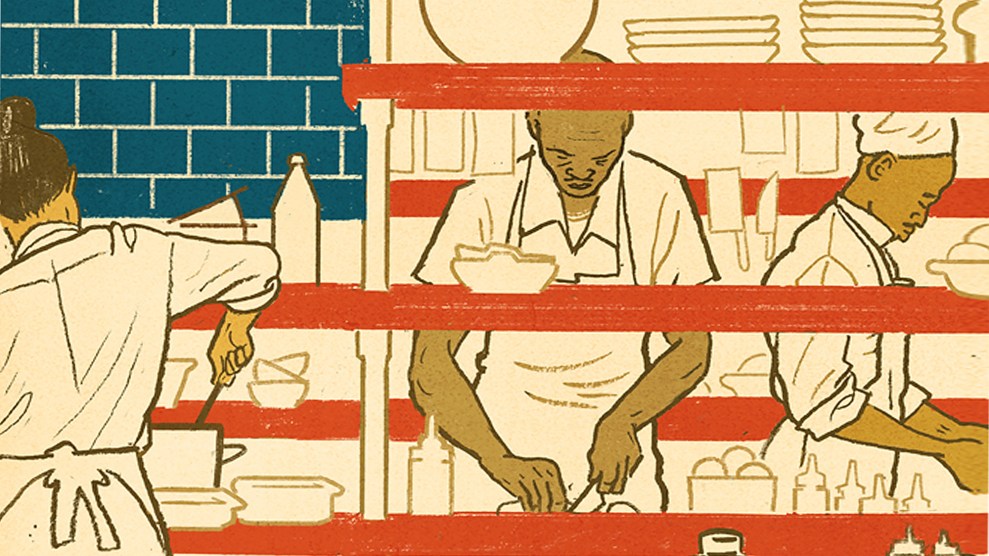
Aja Koska/Getty
From the very start of his administration right through the coronavirus pandemic, former President Donald Trump repeatedly moved to slash funding for the Supplemental Nutrition Assistance Program (formerly called food stamps). The pillar of US anti-hunger policy, SNAP serves 41.8 million participants, more than two-thirds of whom live in households with children, seniors, or people with disabilities. In his zeal to take food away from poor families, Trump was pursuing a long-held policy priority of mainstream Republicans like former US House Speaker Paul Ryan.
Now Biden is undoing some of that damage. In a Monday policy announcement—one that was effectively buried by news of chaos in Afghanistan and the resurgent pandemic—the Biden administration moved decisively in the opposite direction from Trump. Biden’s Department of Agriculture will grow SNAP in a way that will boost recipient families’ monthly benefits by 27 percent, on average, compared to pre-pandemic levels.
The change could significantly improve the lot of struggling US households. Contrary to GOP mythology, SNAP has for years been funded at miserly levels. Before the pandemic, aid-per-recipient averaged less than $1.40 per meal—so it’s no surprise that more than half of SNAP households exhaust an entire month’s benefits within two weeks of receiving them, as a 2017 USDA study found.
Currently, 38.6 million adult US workers, including 11.2 million parents, earn less than a living wage. As a result, SNAP has emerged as not just a key anti-hunger program for people who can’t work, but also one that “increasingly serves the working poor,” as the USDA put in a 2017 report. With Biden’s SNAP boost, more of them may now have a shot at putting enough food on the table every week of the month.
















